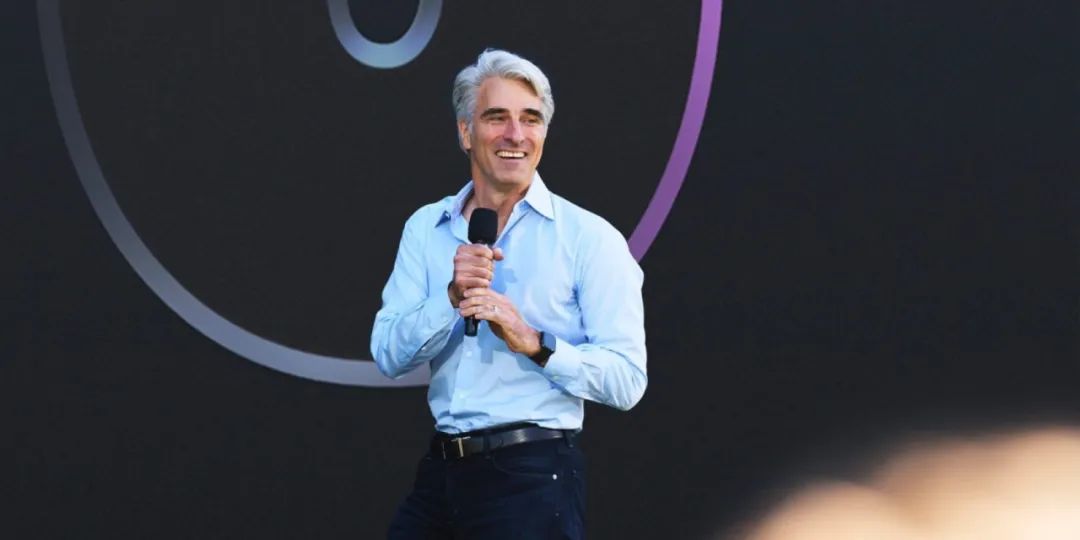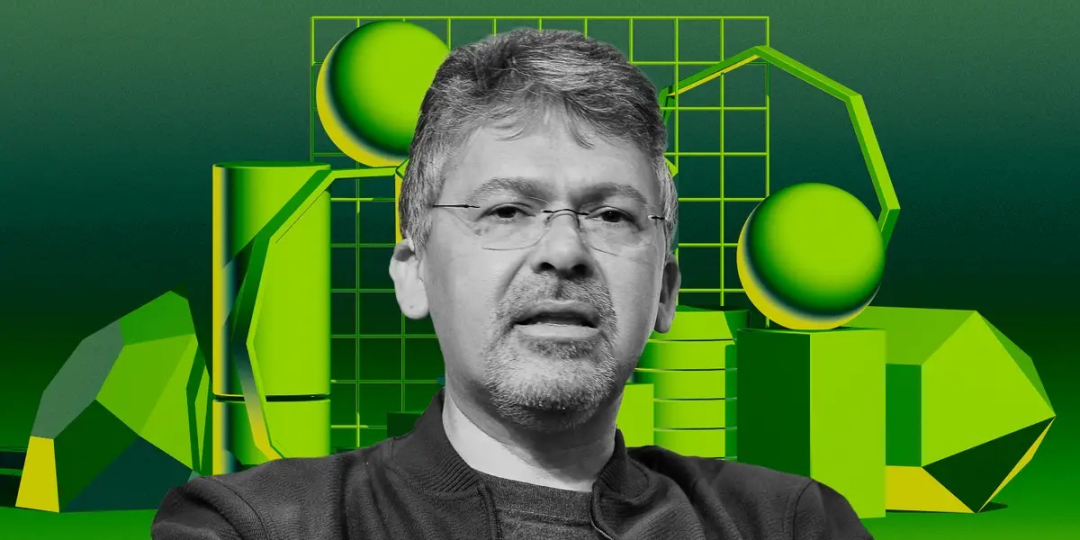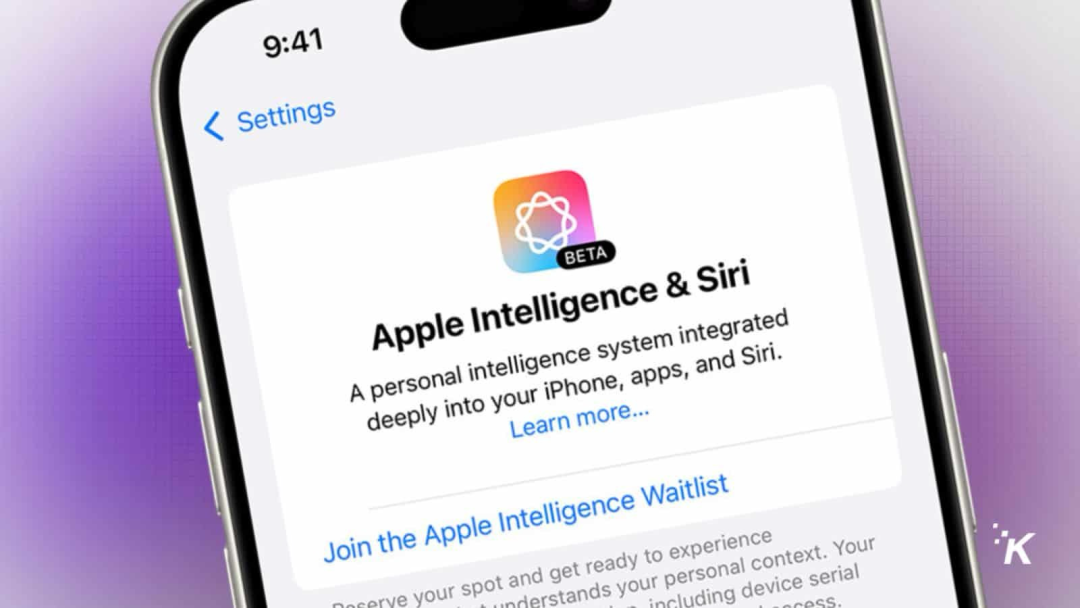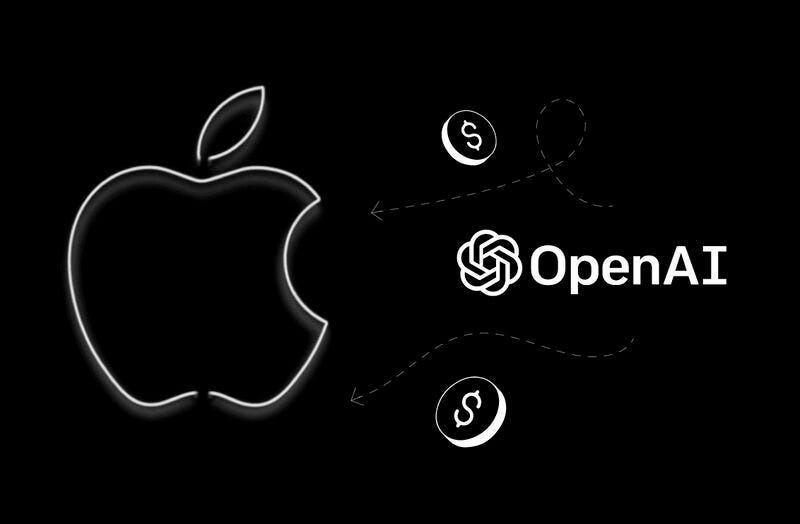Apple Insider Unveils: Who Bears the Responsibility for Siri's AI Lag?
![]() 04/16 2025
04/16 2025
![]() 554
554
Author|Wayne Ma, Compiler|Silicon Rabbit
Apple in the Innovator's Dilemma
Renowned tech journalist Mark Gurman disclosed in March that Apple's Siri might not attain truly modern conversational capabilities until 2027.
This revelation is not without foundation. Apple has consistently been a trailblazer in the tech industry, betting on future technological trends rather than merely pursuing immediate profits. In 2023, Tim Cook announced plans to invest $1 billion annually in developing generative AI products, yet the fact remains that compared to other tech giants, Apple's AI progress has been excruciatingly slow.
Through exclusive, in-depth interviews with Apple insiders, Wayne Ma of The Information endeavors to uncover the reasons behind Siri's failure in AI transformation: strategic indecision, leadership changes, team conflicts, imbalanced incentive mechanisms, and more.
Apple's struggles in AI epitomize the innovator's dilemma in the era of generative AI. Silicon Rabbit has compiled this report, which serves as a crucial reference for business innovation at different stages.
Below is a summary of The Information's article:
At Apple's annual developers' conference last June, the company put on a dazzling demonstration showcasing how AI could enhance the capabilities of the iPhone's virtual assistant Siri. However, in the subsequent months, the Siri team struggled to implement the basic technology required to make it a reality.
According to a former Apple employee familiar with the project, one of the initial options considered was building small and large language models, named "Mini Mouse" and "Mighty Mouse," respectively. The small model would run on the iPhone and handle simple tasks like setting alarms using Siri. The large model would run in the cloud and perform more complex tasks, such as automatically booking an Uber to pick up iPhone users and take them to their destination.
Subsequently, Siri's leadership opted for a different path, constructing a single large model capable of handling all tasks. This necessitated running Siri's software in the cloud, a sharp departure from the previous approach of migrating most Siri software to devices due to privacy concerns. Siri then underwent other significant technical transformations, which frustrated Siri employees and even led some to leave Apple. This also jeopardized Apple's goal of releasing new Siri features this year.
Indecision on major decisions was one of the factors that led Apple to announce last month that it would postpone the release of new Siri features until 2026. According to four informed sources, Apple internally informed employees that they would relieve AI chief John Giannandrea and his deputy Robby Walker of their Siri responsibilities, with Walker overseeing Apple's daily operations.
According to three informed sources, Apple stated that its software engineering chief Craig Federighi would take over Siri's development from Walker, while Mike Rockwell, an Apple executive who led the development of the Vision Pro mixed reality headset, would take over Walker's previous responsibilities.

Craig Federighi
The postponement of this feature release is a setback and embarrassment for Apple in the field of AI, as just nine months ago, Apple assured investors at the developers' conference that it would demonstrate breakthroughs in AI through Siri upgrades and other features.
Although Apple has long been criticized for its incremental innovation in Siri, these criticisms have intensified in recent years with the popularity of OpenAI's ChatGPT and other AI products.
Harnessing AI may be one of the most significant challenges currently facing Apple, the world's most valuable company, and it could determine whether the iPhone and other Apple products can continue to maintain their technological edge.
Some of Apple's difficulties in the field of AI stem from deeply ingrained corporate values, such as its strong stance on user privacy, which makes it difficult for the company to obtain large amounts of data for training models and to verify whether AI functions run on devices.
However, according to multiple individuals who have worked in the AI and software engineering departments, personality conflicts within Apple are also a crucial factor. More than six former Apple employees who worked in the AI and Machine Learning (AI/ML) department under Giannandrea told The Information that poor leadership was the cause of execution issues. They pointed out that Walker lacked ambition and a willingness to take risks when designing future versions of Siri.
To the engineers within Apple, the AI team's lax culture and lack of execution even earned them an unfriendly nickname, an acronym of their department: AIMLess.
Many departments within Apple have a pessimistic internal view of this team, in stark contrast to Apple's software engineering team, which Federighi has led since 2012. This team's work on Apple's operating systems, messaging, photos, email, and other applications has earned Apple a reputation for efficiency and execution.
Former Apple employees have described Siri as a "hot potato," constantly shuffled between different teams, including those led by Apple Services Chief Eddy Cue and Federighi. However, none of these reorganizations significantly improved Siri's performance.
Now, seven years later, the department is back under Federighi's supervision. Some former Apple employees say this change should have happened long ago, especially considering the AI department's poor track record.
For example, Federighi's team also has its own machine learning team, which has taken on increasing AI responsibilities over time, leading to conflicts with some of Giannandrea's teams. The AI team under Federighi is responsible for many of the AI features that have been successfully released so far, categorized as "Apple Intelligence".
An Apple spokesperson declined to comment.

Siri's Problems
Siri's problems were already evident long before its recent struggles.
In 2018, Giannandrea joined Apple from Google to head the newly formed AI department. The tech world viewed his arrival as a significant victory for Apple. Although some executives believed Giannandrea was more interested in overseeing the company's now-shelved self-driving car project, he was particularly interested in Siri, according to an informed source.
At that time, Siri, launched by Apple on the iPhone in 2011, had begun to stagnate – it struggled to answer general questions and had limited support for third-party apps.
Even before Giannandrea took over the Siri assistant, members of the Siri team felt like "second-class citizens" within Apple. According to informed former Apple employees, Siri engineers were frustrated by the software engineering team's control over iOS updates, believing they did not prioritize fixing Siri's issues, while software engineers believed the Siri team was unable to support the new features rolled out by Federighi's team.

John Giannandrea
Giannandrea told others that he was confident he could fix Siri's problems by drawing on Google's strategy for building its own AI voice assistant. According to someone who spoke with him, he believed that Apple only needed the right training data to improve its ability to fetch answers from the web to answer common-sense questions.
In some ways, Giannandrea stood out among his colleagues at Apple. Those who have worked with him describe him as relaxed, quiet, and non-confrontational – a sharp contrast to many other members of Apple's executive team, some of whom are known for their demanding personalities.
Giannandrea often articulated his belief to employees that machine learning could gradually improve products, ultimately leading to significant benefits, a philosophy he dubbed "climbing the mountain." He has also expressed pessimistic views on chatbots, telling Apple employees around the time of ChatGPT's release that he didn't believe chatbots would provide much value to users.
According to former Apple employees who worked in the AI department, after he joined, some colleagues told Giannandrea that he should restructure Siri's leadership, but he did not do so.
Walker, one of Siri's leaders, was often criticized by colleagues. He joined Apple in 2013 and was responsible for the company's daily operations by the end of 2022. In the eyes of critics, Walker was unwilling to take big risks with Siri, focusing instead on metrics that had little impact on Siri's performance. Walker clearly did not have a grand vision for overhauling the voice assistant.
For example, according to former Apple engineers, Walker would often celebrate minor improvements, such as reducing the delay between a user asking Siri a question and Siri responding by a few percentage points. They said another of Walker's favorites was removing the "Hey" from the "Hey Siri" voice command used to invoke the voice assistant, a project that took more than two years to complete.
According to an informed source, last year, Walker rejected an attempt by a team of engineers to use LLM (Large Language Model) to increase Siri's emotional sensitivity, enabling it to detect users in distress and provide appropriate responses.
Walker told colleagues that he wanted to focus on the next version of Siri instead of investing resources in the project. Unbeknownst to him, the engineers on the project bypassed him and continued to develop these features in collaboration with the security and localization teams within the software engineering group.

Imbalanced Incentive Mechanisms
Over time, the relationship between Federighi's software engineering team and Giannandrea's AI team became increasingly tense and sometimes completely dysfunctional.
Stylistically, the two executives are vastly different. Federighi's tough and demanding management style contrasts sharply with Giannandrea's relaxed and casual approach. According to individuals who have attended meetings with them, Federighi would pepper colleagues with questions, while Giannandrea was more adept at listening.
Other grievances also festered. Some in the software engineering group resented the higher salaries and faster promotions received by their colleagues in the AI group. They were also unhappy that some AI engineers seemed to enjoy longer vacations and leave work early on Fridays, while they themselves faced heavier work schedules.
The distrust between the two teams became so severe that earlier this year, one of Giannandrea's deputies asked engineers to document the development process of joint projects in detail, so that if the projects failed, Federighi's team could not shift the blame onto the AI team.
This did not improve relations between the two groups when Federighi began forming his own team of hundreds of machine learning engineers, named "Intelligent Systems" and led by Sebastien Marineau-Mes, a senior deputy of Federighi.
Over the years, the "Intelligent Systems" team has been training its own models and building demos that allow users to control applications through voice commands, often without the help of the Siri team. This has led to tensions within the company with the Siri team.

According to two informed sources, during an internal Apple presentation, a member of the "Intelligent Systems" team showed a slide with an animation depicting two mountains colliding and being leveled. Some viewed it as a subtle dig at Giannandrea's "climbing the mountain" philosophy.
Around 2022, the "Intelligent Systems" team began collaborating with Walker and Vision Pro head Mike Rockwell on a project code-named "Link," but the project quickly failed, according to four former Apple employees with direct knowledge of the project. The goal of the project was to develop voice commands to control applications and complete tasks on mixed reality headsets and future augmented reality glasses.
Engineers attending the tripartite collaboration meetings were shocked by the open hostility shown by Rockwell and Marineau-Mes towards Walker, the daily head of Siri. The two often expressed dissatisfaction to Walker about the slow progress of Siri in supporting Vision Pro.
For example, Rockwell wanted users wearing headphones to be able to use Siri to browse the web and adjust window sizes using only their voices. He also wanted two people communicating in virtual space to be able to interact with Siri together, such as planning a joint vacation.
But some members of the Siri team were skeptical of this goal. According to insiders, ultimately, many of the Siri features Rockwell envisioned for Vision Pro were cut because the Siri team couldn't deliver.

The Climax of AI-Induced Excitement
In November 2022, OpenAI released ChatGPT, causing a strong reaction in the tech world and among the public. However, according to former engineers who worked on Giannandrea's AI team at the time, senior leadership did not show a sense of urgency.
The response within Federighi's software engineering team was starkly different. Multiple former Apple employees said that senior leaders in the "Intelligent Systems" team immediately began sharing LLM papers and openly discussing how to use them to improve the iPhone.

After members of the "Intelligent Systems" team demonstrated what AI could achieve on the iPhone to Federighi, excitement bubbled up within the software engineering team. These demonstrations, using OpenAI's models, showcased how AI could understand the content on a user's phone screen and support a more conversational voice to navigate apps and perform other tasks.
Former Apple employees revealed that executives from both the AI and software engineering departments rushed to assert control over the new features fueled by Large Language Models (LLMs). Notably, in numerous instances, software engineering stood out due to its reputation for delivering exceptional results.
Despite the company's exploration with OpenAI's models, in 2023, Apple managers informed their engineers that external company models could not be included in final Apple products; they could only be used for comparative purposes against internal models.
However, according to multiple former Apple employees who utilized these models in 2023 and 2024, their performance paled in comparison to OpenAI's technology.

A perplexing showcase
In June of last year, Apple unveiled a suite of AI features named Apple Intelligence. This suite encompassed writing and image generation tools, new photo editing and email features, and an enhanced Siri.
Furthermore, Apple reversed its previous stance against collaborating with other companies' AI models by announcing a partnership with OpenAI and offering ChatGPT as an extension to address queries or execute tasks beyond the capability of its own models.
During the on-stage demonstration at the conference, an Apple executive queried Siri about the arrival time of her mother's flight. The voice assistant accessed her email and real-time flight data, providing the current arrival time. Subsequently, she asked Siri to remind her about lunch plans, and the voice assistant extracted details from her iPhone messages and planned a route from the airport to the restaurant.
However, for members of Apple's Siri team, the demonstration was bewildering. A former Apple employee stated that they had never witnessed a functional version of these features. The former employee added that the only new feature activated on the test device during the demonstration was a flashing colored ribbon that appeared at the edge of the iPhone screen when users invoked Siri.
For Apple, the Siri demonstration deviated from past practice. Historically, Apple only showcased features and products at its events that were already operational on test devices and had been approved by the marketing team to ensure timely releases.
Nonetheless, the event left a lasting impression on the outside world. Apple's stock price surged by over 10% within two days of the announcement of these features, and Wall Street was reassured by the company's rollout of AI initiatives.
Some former Apple employees expressed optimism that Federighi and Rockwell could revitalize Siri's fortunes, as they are generally more hands-on compared to Giannandrea and Walker, who rely more heavily on their direct subordinates for management.
Federighi is known for having a deeper understanding of the technical details of software projects than junior engineers working on them. Rockwell, who joined Apple in 2015, is regarded within the company as a visionary leader who can introduce new ideas into projects while deftly navigating the corporate culture.
Federighi has already altered the status quo. According to an insider, he has reversed his previous strategy and instructed Siri's machine learning engineers to do whatever it takes to build the best AI features, even if it means incorporating open-source models from other companies into their software products instead of Apple's own models.
The views expressed in this article are solely those of the author and do not represent the position of Silicon Rabbit.
Reference article: How Apple Fumbled Siri’s AI Makeover (The Information)








